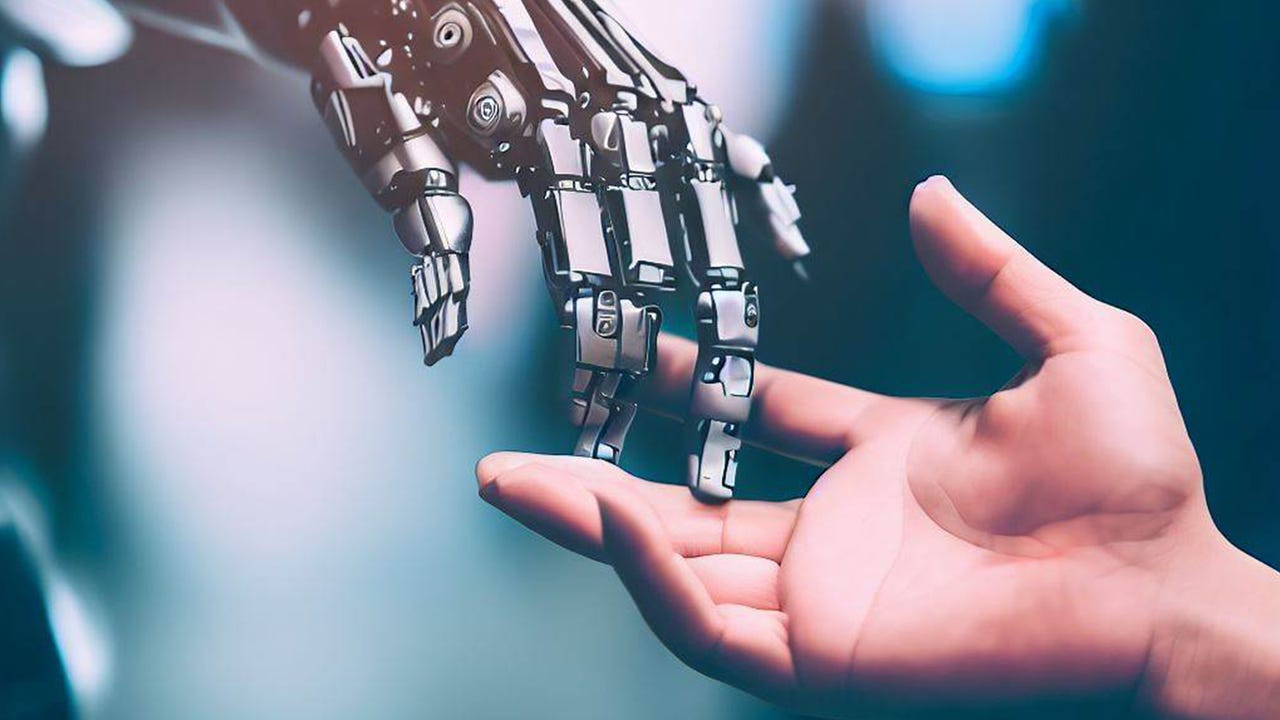Artificial intelligence is a powerful and disruptive technology that can have positive and negative impacts on human kind. In this blog post, we explore some of the predictions and solutions proposed by Geoffrey Hinton, one of the pioneers of AI.
How artificial intelligence can wreck havoc on human kind?
AI chatbots could soon overtake the level of information that a human brain holds and do simple reasoning better than humans. For example, ChatGPT is an AI chatbot that can generate text on any topic based on a few words or sentences given by the user. It can also answer questions, write essays, create stories, and more. It has access to a large amount of data from the internet and can learn from it. It can also perform simple reasoning tasks such as summarizing, paraphrasing, or comparing texts.
AI could be misused by "bad actors" who could give robots the ability to create their own sub-goals that could conflict with human interests. For example, a rogue state or a terrorist group could use AI to create autonomous weapons or cyberattacks that could harm civilians or cause chaos. They could also program the AI to pursue its own objectives without regard for human values or ethics.
AI is a new form of intelligence unlike our own, and we may not be able to understand or control it. For example, AI systems could become so complex and powerful that they could surpass human intelligence and capabilities. They could also develop their own language, logic, or morality that humans cannot comprehend or influence. This could lead to a scenario where AI becomes an "alien" entity that humans cannot communicate with or predict .
AI could lead to technological unemployment, social inequality, and existential risk from artificial general intelligence. For example, AI could replace many human jobs in various sectors such as manufacturing, transportation, education, or healthcare. This could result in mass unemployment, poverty, and social unrest. AI could also create a digital divide between those who have access to it and those who do not, leading to inequality and discrimination. AI could also pose an existential threat to humanity if it develops artificial general intelligence (AGI), which is the ability to perform any intellectual task that humans can. AGI could potentially surpass human intelligence and control, and become artificial superintelligence (ASI), which is the ability to perform any intellectual task better than humans. ASI could have goals that are incompatible with human survival or well-being.
What are some possible solutions or safeguards for these problems?
To address the problem of AI chatbots overtaking human information and reasoning, one solution could be to 'overhaul the education system' and give more focus on skills like critical thinking, creativity, and innovation as these skills are hard to replicate by AI. Another solution could be to 'increase both public and private investment' in developing human capital so that they are better aligned with industry demand and can adapt to changing needs.
To address the problem of AI being misused by bad actors, one safeguard could be to 'establish international norms and regulations' for the development and deployment of AI systems, especially those with military or security implications. Another safeguard could be to 'ensure transparency and accountability' of AI systems and their creators, and to 'involve diverse stakeholders' in the design and oversight of AI systems .
To address the problem of AI being a new form of intelligence unlike our own, one solution could be to 'develop human-centric AI' that respects human values, ethics, and dignity, and that augments rather than replaces human capabilities. Another solution could be to 'foster collaboration and dialogue' between humans and AI systems, and to 'educate the public' about the benefits and risks of AI .
To address the problem of AI leading to technological unemployment, social inequality, and existential risk, one solution could be to 'improve the condition of the labor market' by bridging the demand-supply gap and giving impetus to the gig economy. Another solution could be to 'implement social policies' such as universal basic income, reskilling programs, or taxation schemes to redistribute wealth and reduce inequality. A third solution could be to 'tread carefully toward artificial general intelligence' and avoid current assumptions on the upper limits of future AI capabilities .
What are some possible solutions or safeguards for these problems?

